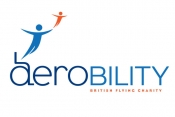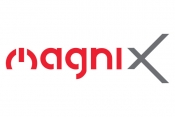OneWeb Commissioned Research Shows Better In-flight Connectivity Could Transform Passenger Wellbeing
Monday 13th June 2022
OneWeb, the global space-based communications company, has today released initial findings from its first OneWeb Connected Passenger Report, an extensive survey of passenger attitudes toward air travel and inflight connectivity (IFC) in the post-pandemic landscape. To undertake the research, OneWeb partnered with leading independent international research agency, TAG Research, to collect both qualitative and quantitative data. The qualitative sample was collected in twenty-seven individual, hour-long interviews with frequent flyers across 5 key groups including corporate travel bookers, digital nomads, travel bloggers, and young frequent flyers. The qualitative data was obtained through a detailed survey completed by 4,110 individuals from across the US, UK, Singapore and the UAE.
Today, OneWeb shares with the airline industry a complimentary whitepaper featuring the key findings from the research. These timely findings clearly indicate a frustration with current connectivity solutions and provide a clear vision of what passengers really want from airlines post-COVID.
Post-pandemic, passengers prioritise quality of life more than ever before, and find frequent travel to be disruptive to their physical and emotional wellbeing. Current IFC services add to the stresses of travel for business and leisure passengers alike, and the survey highlights some of these top frustrations, including:
- The prospect of Wi-Fi disconnection in the sky creates undue stress before the flight.
Ben Griffin, VP Mobility at OneWeb, commented: “OneWeb is proud to share the results of this survey with our colleagues across the industry, as we work together to better understand and address the needs and demands of modern air passengers. The Connected Passenger Report sheds light on the shifting sentiment of passengers who are demanding better and more consistent connectivity, while also prioritising wellbeing and sustainability more than ever before. These insights are incredibly important as we look to build solutions and inflight experiences that cater to the digitally demanding and socially conscious passengers of tomorrow.”
Post-Pandemic Sustainability and Wellbeing Higher on Passenger Agenda
Lockdown’s empty skies sharpened the focus on sustainability, and lessons from lockdown include an amplified commitment to quality of life and wellbeing.
“Sustainability and wellness are very much part of the discussion. It may be that people travel less frequently but stay longer. Sustainability is a conversation that we are having with all our corporate customers” - (Corporate Travel Booker)
Lack of Connectivity in the Sky Causes Stress on the Ground
Being offline inflight induces stress and generates ‘extra work’ for passengers, both pre and post flight.
“I’m literally the last person turning [my data] off. It does panic me because I just think “oh my God, I won’t be able to send another message”, or you’ll send one and you won’t get the reply. That is quite stressful”
(Travel Blogger)
People Have Developed Coping Mechanisms to Mitigate Disconnection
Many passengers lament their lack of preparation and relay tales of panicky downloading as they linger at the gate.
“It is quite annoying. I had to take a photo of every single page of my study book the other day so I could do my homework on the flight. I had to do it really quickly before the flight”
(Young Frequent Flyer)
Current IFC is not relied upon – so many people do not even bother with it
In a finding sure to alarm the IFC industry, 7 out of 10 respondents claim they’ve never tried inflight Wi-Fi citing perceived unreliability, cost and pre-established coping mechanisms as their reason for not connecting. 43% of those who have call the experience frustrating. As a result, passengers are generally reluctant to abandon their coping mechanisms and continue to dedicate a significant amount of time and effort to preparing for disconnection during the flight.
Commenting on the results, Ben Griffin said “Despite the significant investment airlines are making in their IFC offering, it is clear the current in-flight connectivity experience is not consistently delivering on the needs of today’s connected passenger with a majority of passengers not even taking the time to connect. The flying public have spoken, and these results underscore a huge opportunity for airlines to improve their passengers experience, and loyalty by enhancing their IFC”.
Great Wi-Fi Onboard Can Contribute to a Sense of Wellbeing
When passengers pause and think about their entire travel experience, the notion of being empowered to drop their coping mechanisms and free up time pre-and post-flight has tangible appeal. In the survey, 56% of passengers said they’d use better Wi-Fi to access entertainment of their choice, 48% said they’d feel happier keeping in touch with people on the ground, and 41% said they’d like to keep on top of work while flying.
Early Adopters of better Inflight Wi-Fi Stand to Gain from Improving Travel Wellness
Passengers were adamant that airlines which provide consistently high-quality IFC will stand apart from the competition and inspire loyalty.
“It would almost definitely impact our choice of airline. Good internet connectivity would be a game changer for us”
(Digital Nomad)
Commenting on the outcome of the study, Rachel Orgueil, Partner at TAG Research said:
“Our hypothesis at the outset of this project was that improved connectivity would be broadly welcomed by passengers and enhance their inflight experience. Our research revealed the benefits of IFC are far more compelling and extensive, with the potential to positively impact the entire travel experience and passengers’ well-being. There is every indication that airlines will need to provide high quality IFC as a standardised part of their offer once it is available.”
Over the coming weeks and months, OneWeb will delve deeper into the data and sharing additional insights with the aviation sector.
Methodology:
Quantitative data was collected in a survey completed by 4,110 individuals from across the US, UK, Singapore and the UAE. Research took place between February and March 2022. The qualitative research was collected through interviews with frequent flyers across five topics (including digital nomads, travel bloggers, journalists, corporate travel bookers and young frequent flyers).
See the OneWeb Connected Passenger Report here:
https://go.oneweb.net/
aviation/passenger_survey About OneWeb
OneWeb is a global communications network powered from space, headquartered in London, enabling connectivity for governments, businesses, and communities. It is implementing a constellation of Low Earth Orbit satellites with a network of global gateway stations and a range of user terminals to provide an affordable, fast, high-speed and low-latency communications service, connected to the IoT future and a pathway to 5G.
Find out more at http://www.oneweb.world.
OneWeb is exhibiting at Aircraft Interiors Expo at Messe Hamburg, Germany Stand 2E40. Between June 14-16th.
About TAG
TAG is an independent International FMCG research agency, established in 2006, based in the UK, with global reach in over 20 countries. Comprised of 100% Director level researchers, all with minimum 20 years industry experience and a skill set encompassing a multitude of sectors and different research disciplines.
http://www.tag-research.co.uk/
Latest News

Tuesday 4th March 2025
Gama Aviation sees increasing business aviation traffic through Sharjah International Airport







Get Social
Twitter Linked in Facebook Instagram